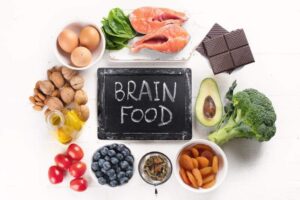
Over the past 100 years, the average lifespan has almost doubled. At the turn of the 20th century, in the industrialised West, you could expect to live until your 40s, on average. In the modern-day United States (and the figures are similar for other Western nations), the typical man can anticipate remaining on this Earth until he is 75. If you’re a woman, you can expect a few more years.
Although this is obviously a welcome development – largely brought about by improvements in healthcare and the defeat of infectious diseases – it is a double-edged sword. The body could well keep going throughout all these decades, but the brain might not; and, if you are left able-bodied but with a permanently compromised brain, then you will be in an unenviable position. Such is the concern that a recent survey by Alzheimer’s Research UK showed that, for almost half of the respondents, dementia is the condition they fear the most, rising to more than 60 per cent among those aged over 65.
Avoiding dementia is only one consideration, however. Of equal importance is optimising brain function throughout your lifespan – allowing this vital organ to function at its best in the many decades before dementia becomes most relevant. Doing this will help you enjoy greater productivity, happiness and life satisfaction.
Nourish your brain
The brain accounts for only 2 per cent of your bodyweight yet uses 20 per cent of its energy requirements. It is not surprising then that, if it is not receiving the right fuel, it will not operate well. Achieving this requires both the right nutrients being taken in and also an adequate transport system to get them to the brain.
The most evidence-based diets for brain protection are the Mediterranean diet or its close cousin, the MIND diet – short for the Mediterranean-DASH intervention for Neurodegenerative Delay, where DASH itself is an acronym for Dietary Approaches to Stop Hypertension.
Foods to include: Green leafy vegetables and other preferably non-starchy vegetables; spices and herbs; legumes and beans; wholegrains; cold-water fish – salmon, tuna, sardines and the like; olive oil; poultry; nuts and seeds; berries
Foods to be wary of: Processed and sugary foods; dairy and red meat
Train your brain
‘Cognitive reserve’ refers to the brain’s capacity to function well despite physical damage caused by injury or illness, such as Alzheimer’s disease. The higher the reserve, the better off the brain will be. Various factors, such as higher levels of education and cognitively demanding careers, are associated with having greater cognitive reserve, but you can also take proactive steps to train your brain and boost your cognitive reserve.
To train your brain in an optimally effective way, certain conditions are necessary. Firstly, it is generally accepted that novelty and diversity are required – doing things your brain is not used to. Perennial crossword addicts might be better off doing sudokus, and vice versa. Learning a new language, dance style or musical instrument are also great examples of this. Repeated practice is also of particular benefit in helping improve a specific cognitive skill – this consolidates the neural circuitry underpinning the skill. Then there is the complexity. Harder cognitive tasks tax the brain more and will be of more benefit: this is akin to pumping iron in the gym – the real gains are made by pushing yourself. A final condition – progression of complexity – is related to this; essentially, it means continually ratcheting up the difficulty level of your learning or mental activity so that you are sufficiently challenged.

Care for your mental health (and connect with others)
Use of the terms ‘brain health’ and ‘mental health’ makes it sound like these are two separate things, but in reality they are deeply intertwined. Two of the most common mental health problems – depression and anxiety – can both have harmful effects on the brain, alongside their more obvious effects on mood and emotion. If you have experienced these debilitating conditions, you will appreciate the short-term effects – slowed thinking, memory and concentration difficulties, brain fog and the like. In extreme cases, they can be severe enough to mimic dementia.
One of the key influencers of mental health is our degree of social connection, and if this is lacking, especially when it results in a feeling of loneliness, then the brain suffers, and the risk of dementia is raised. Again, this could be in part mediated by inflammation – both social isolation and loneliness have been shown to increase the levels of inflammatory markers in the blood. Feelings of loneliness can result in a host of other problems – mental illness and physical health problems alike – and these can also have a negative effect on the brain. For these reasons, some experts have even likened loneliness to a ‘disease’ that alters the brain’s structure and function. Conversely, socialising in effect trains the brain and builds cognitive reserve. The to and fro of conversation requires considerable brain power – you have to pay attention to what is being said, keep it in mind, formulate a response, and exercise good social judgment. All these skills are worth honing. Consider the findings from a decades-long British study involving thousands of government employees – those who were more socially active with friends during their 30s, 40s and 50s had superior cognitive performance at the end of the study and, moreover, those who were more socially active in their 60s were at less risk of dementia later on.


